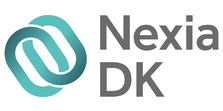India’s buoyant M&A landscape
India looks set for continued M&A activity after a quieter start to 2019.
2018 was a phenomenal year for the M&A deals in India, with total transactions value exceeding the USD100 billion mark.
Mergers and acquisitions (M&A) alone accounted for USD80b, with the Flipkart-Walmart deal contributing 20% of total M&A value and breaking records as the largest transaction in the country’s history.
In line with anticipated investor behaviour, 2019 began on a relatively cautious note, with the M&A landscape measuring USD23b in the first eight months, marked by the absence of significant bigticket investments.
Political uncertainty due to elections in the first half of the year has been the major factor tempering deal momentum in 2019.
Exchange rate volatility, global trade wars and current fiscal conditions have also contributed to some extent.
Looking forward, favourable government policies aligned with robust economic conditions have created an expectation for investors to continue screening investment opportunities, with execution of deals anticipated in the latter half of the year.
M&A activity is expected to be impacted by the Union Budget 2019 announced by the Modi Government 2.0, with measures including:
- Proposed relaxations to foreign investment in aviation, insurance, and single-brand retail.
- Relaxation of angel tax assessmentfor start-ups.
- A reduction in custom duty rates on raw materials, encouraging foreign companies to set up operations in India.
Unique advantage
At the same time, global geopolitical developments have given India a unique advantage as a destination for expansion. Several technology-driven M&As are expected to take place going forward in sectors such as fintech, data analytics and the automobile industry, with the gradual switch to electronic vehicles.
With initiatives like ‘Make in India’ complementing the current Union Budget, M&A activity is likely to gain momentum.
Despite a modest start to 2019, M&A is expected to gain traction as the year progresses, with the economy showing a promising estimated growth rate exceeding 6%. While 2018 witnessed significant growth in domestic M&A activity, cross-border transactions are expected to gain impetus in 2019, owing to technology and e-commerce opportunities.
Cross-border transactions have mainly taken place in the information technology, financial, and consumer discretionary industries. The financial sector has contributed significantly to inbound deals, with leading Indian financial companies such as Reliance Nippon Life Asset Management, Max Financial Services Ltd and Paytm being involved in deals aggregating USD1,251 million.
Wabco India Ltd was acquired by ZF Friedrichshafen AG for USD430m, with the aim of serving OEMs and fleets in the automotive and commercial vehicle industry with greater efficiency. Investments are flowing primarily from South Asian countries and the US, contributing more than 55% of the inbound deal value.
Outbound deals have been mainly focused on the IT sector, including Oravel Stays acquiring Leisure Holdings, and Hexaware Technologies acquiring Mobiquity. In terms of deal volume, the US accounts for 35% of outbound deals.
The government’s initiatives towards long term reform aim to make the Indian market a stable investment destination in the long term. At the same time, revisions in fiscal and monetary policy aim to stimulate and stabilise consumption, enabling India to weather global economic challenges.
For more information, contact:
Manoj Gidwani
SKP Business Consulting
T: +91 22 6730 9000
E: manoj.gidwani@skpgroup.com
W: www.skpgroup.com


